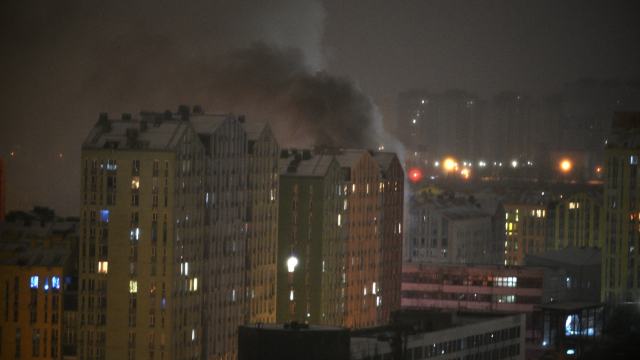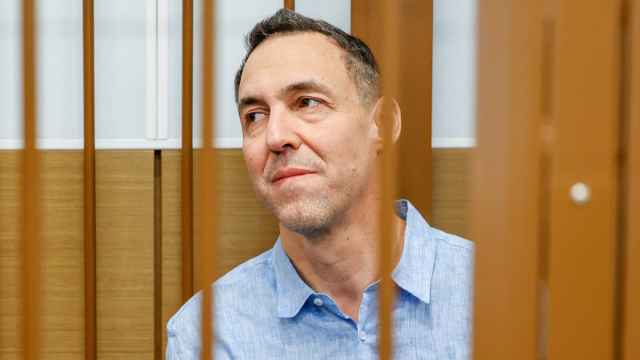Sayano-Shushenskaya, the country's largest hydroelectric power plant, will partially resume work Wednesday after an accident in August crippled its generating equipment and killed 75 people, a Cabinet spokesman said.
Prime Minister Vladimir Putin will take part in the ceremony to relaunch the station's repaired hydroelectric unit No. 6 — one of the least damaged — during a two-day trip to the Siberian republic of Khakasia starting Wednesday, the spokesman, Dmitry Peskov, said Tuesday.
RusHydro, the state-controlled company that runs the station on the Yenisei River, said on its web site that the unit would immediately begin operating at its full capacity of 640,000 kilowatts. Once restarted, the unit will take some of the extra strain off Siberia's coal-powered electricity generators — and reduce their polluting effect.
“The coal-powered stations in operation are simply terrible,” said Sergei Beiden, an electricity analyst at Metropol.
The relaunch, to be followed by three more units this year, will also trim RusHydro's expenses for supplying electricity to two aluminum plants run by United Company RusAl, Beiden said. When Sayano-Shushenskaya went out of order, RusHydro had to replace its cheap, pre-agreed deliveries with much more expensive electricity from the market.
A burst at a worn-out turbine flooded the station's premises and damaged all 10 of the station's generating units. With total capacity of 6.4 million kilowatts, Sayano-Shushenskaya was the world's fourth-largest hydroelectric power station.
Engineers will rebuild and launch one more unit by the end of March and two more later this year, the Cabinet said in a statement Tuesday. RusHydro will ultimately replace all 10 units by 2014. It placed an 11.7 billion ruble ($390 million) contract for the equipment with Power Machines last year, a deal that stipulates completion of the first new unit in January 2011, the statement said.
RusHydro spent 6.4 billion rubles on disaster relief efforts last year and plans to spend a further 16.1 billion rubles this year, the Cabinet said.
Beiden said Siberia's coal-powered electricity plants would likely need longer and more extensive maintenance work later this year after having to pick up the slack this winter, which has the potential to cause regional prices to climb when they begin suspending work.
But he and Oleg Zotikov, an electricity analyst at the investment company Veles Capital, said Wednesday's relaunch would not affect prices immediately.
“There wasn't a surge in prices when the station went out of operation,” Beiden said.
During the trip, Putin will also hold a meeting to take stock of the investment by state and private companies that snapped up pieces of the dismantled electricity monopoly Unified Energy System, vowing to expand and upgrade the country's generating capacity.
Last year, these new owners brought into operation 1,694 megawatts, more than the 1,300 megawatts anticipated by Energy Minister Sergei Shmatko in November, the Cabinet statement said. The plan for this year is to build 5,964 megawatts of new capacity.
A Message from The Moscow Times:
Dear readers,
We are facing unprecedented challenges. Russia's Prosecutor General's Office has designated The Moscow Times as an "undesirable" organization, criminalizing our work and putting our staff at risk of prosecution. This follows our earlier unjust labeling as a "foreign agent."
These actions are direct attempts to silence independent journalism in Russia. The authorities claim our work "discredits the decisions of the Russian leadership." We see things differently: we strive to provide accurate, unbiased reporting on Russia.
We, the journalists of The Moscow Times, refuse to be silenced. But to continue our work, we need your help.
Your support, no matter how small, makes a world of difference. If you can, please support us monthly starting from just $2. It's quick to set up, and every contribution makes a significant impact.
By supporting The Moscow Times, you're defending open, independent journalism in the face of repression. Thank you for standing with us.
Remind me later.





